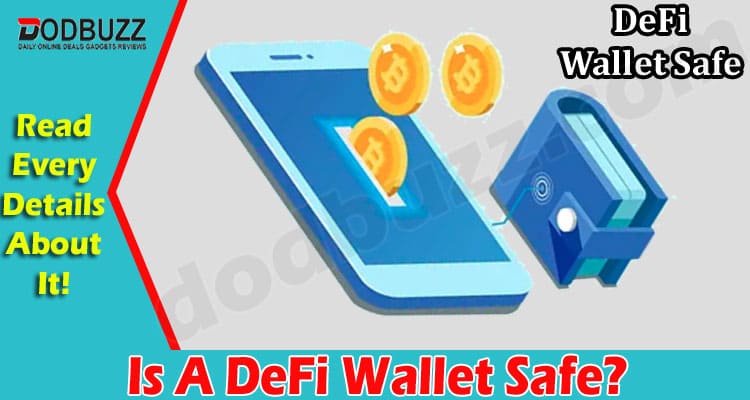DeFi Wallet: As the industry of Decentralized Finance (DeFi) is booming, and new blockchain-empowered platforms appear every single day, crypto-savvy people frequently encounter a need to effectively store and safeguard their virtual assets, while also being sure their electronic funds are not on the shelf, but work and bring some income. One of the ways to protect digital tokens and put them to a good use is DeFi wallets – non-custodial crypto wallets that are not tied to any cryptocurrency exchange.
What is A DeFi Wallet?
A DeFi wallet is a hardware or software solution that stores your cryptocurrencies. Such wallets are non-custodial, meaning they are not responsible for safekeeping the wallet’s seed phrase or private keys, but only the person themselves. Alternatively known as a smart-contract wallet, a DeFi wallet is often a multi-purpose application and can provide access to different blockchain projects, crypto exchanges, and DeFi protocols.
Generally, a DeFi wallet will provide the following functionalities:
- Token storing. You can store and manage hundreds of tokens within a single interface.
- Token transfers. This allows you to send virtual assets to any crypto exchange or crypto wallet.
- Earning. DeFi wallets often come with an earning (staking, yield farming) functionality where you can gain interest on certain tokens simply by holding your assets within the given DeFi wallet.
- Exchange. You can perform trades without leaving the wallet.
- NFT support. Advanced DeFi wallets allow you to hold NFTs within your account.
- Fiat purchases. Certain products allow you to buy DeFi coins using fiat money such as USD or EUR.
Is A DeFi Wallet Safe?
A DeFi wallet enables users to fully own and easily manage their digital assets and is generally considered one the safest methods for storing virtual currencies. Such a wallet provides an individual with complete authority over their electronic holdings and leaves the asset’s ownership in the hands of a user regarding access points.
The non-custodial nature of a DeFi wallet means that it will always ensure only the wallet’s owner can access the funds. DeFi wallets are key-based solutions that require users to be in charge of their finances and ensure the safety of private keys and the seed phrase (an analog to a password to gain access to the wallet). Still, as the user is entirely responsible for protecting sensitive information, there is a risk of the permanent inability to access the finances in case of losing the wallet’s login data.
To take the security to the next level, many popular DeFi wallets also incorporate multi-signature technologies where for a transaction to be completed, a simultaneous confirmation of several participants is mandated. Sophisticated key-generation technologies are also employed by DeFi wallets to create hard-to-hack keys, helping users better protect their sensitive login credentials. There is also no shortage of DeFi wallets that natively support hardware (physical device) wallets, which allows users to interact with DeFi networks using tokens held in offline storage.
Obviously, modern DeFi wallets are committed to ensuring the ultimate security and privacy of data, which endears them to so many users worldwide. The most trusted and feature-rich DeFi wallets of today include MetaMask, MyCrypto, MyEtherWallet, and Solflare. Consider performing your own research before deciding in favor of this or that DeFi wallet.







